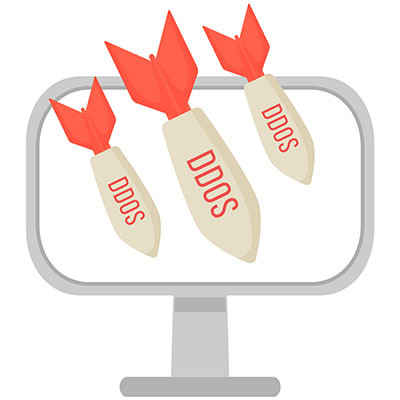JS Business Solutions Blog
You may remember the hubbub and hullabaloo that ensued when Josh Allen, a digital artist, won first place at the 2022 Colorado State Fair’s Fine Arts Competition in the Digital Arts/Digitally Manipulated Photography contest with an image—"Théâtre D'opéra Spatial"—that he had created using AI. Allen continues defending his work, now butting heads with the Copyright Office.
Problems with cybersecurity can really sink your business. Unfortunately, more opportunists are out there today looking to profit off of business’ lack of vigilance. One example of this are large-scale scam operations that have been running in Southeast Asia, and they are now spreading to other parts of the world. These scams, called "pig butchering" scams, have caused major harm, with around $75 billion lost worldwide in 2023.
Sextortion scams are far from glamorous. These attacks involve a scammer claiming to have compromising photos or videos of their target engaged in explicit activities—often suggesting this footage was captured through their online behavior. The scammer then threatens to release this material unless a ransom is paid.
The state of Internet security is always a trip. There are scams literally everywhere and there are better minds than ours that want to solve the myriad of problems that users run into online. One such platform is the secure communications software Telegram founded by Pavel Durov. In this attempt to revolutionize the instant messaging space, he’s found himself in some pretty hot water. Let’s dive right in.
On Friday, July 18th, a global update—codenamed “Falcon”—to cybersecurity company CrowdStrike’s software triggered events that brought major infrastructures and societal needs to their knees… despite affecting less than one percent of all Windows systems.
Now that about one and a half weeks have passed, let’s check in and see what happened, both leading up to this event and in the days since.
We know that living in a constant state of fear of being scammed is not ideal, but it’s the unfortunate reality of living in today’s technologically advanced world. The good news is that it’s never too late to learn how to avoid them! Let’s discuss how you can be more aware of the challenges of scams not only in a business setting, but in everyday life.
Many individuals are concerned about the future of AI, including the White House, which encouraged companies like Amazon, Anthropic, Google, Inflection, Meta, Microsoft, and OpenAI to commit to helping with the management of artificial intelligence. Other companies, including Adobe, Cohere, IBM, Nvidia, Palantir, Salesforce, Scale AI, and Stability, have joined in this pledge to maintain “the development of safe, secure, and trustworthy AI,” according to the White House.
Zero-day vulnerabilities are never fun, but this is especially the case with popular devices, like the many that use the Samsung Exynos modem. Google’s Project Zero has discovered 18 such vulnerabilities in these chips, four of which allow for remote code execution. Why should you be concerned about these vulnerabilities and what can you do to minimize your risk?
We make a consistent point to urge our readers to take their organizational cybersecurity seriously. This is because there are threats out there that are targeting your business, no matter how small it is. This week, we take a break from the itemized list of security tips to present 2022’s most devastating cyberattacks to give you an idea what hackers today can do.
While it may not be the first target one might think of when it comes to cyberattacks, a recent Distributed Denial of Service (DDoS) attack on the Vatican’s official website only proves that cyberattacks can potentially influence any organization. Let’s consider the situation, as well as what lessons we can all take away from it.
Let me ask you a question: would you see The Mona Lisa, The Starry Night, or Girl with a Pearl Earring as the masterpieces they are considered today if they were actually created using artificial intelligence? While it might seem like a silly question, it is one that the results of the recent Colorado State Fair’s fine art competition—where the first-place winner was created using AI—leads us to ask.
Inflation continues to plague businesses in all sectors and industries, and it’s not letting up. This has led businesses to implement practices which allow them to get as much value out of their investments as possible, including technology. Let’s go over some of the ways you can achieve a responsible IT budget without breaking the bank in the process.
Continuing their record of the past few months, Cloudflare has stopped yet another DDoS attack—this time, one of record-breaking severity. According to the company, this attack—specifically, an HTTPS DDoS attack—was the largest one ever recorded.
Let’s explore what this kind of attack is in the context of what happened, and what you can do to help keep your business safe.
Unless you live under a rock and somehow missed it, Facebook experienced an outage, an inconvenience that kept users from accessing its services all over the world. Perhaps to your surprise, the real ramifications of this outage have nothing to do with people not being able to share pictures of their cats or yell at each other in the comments.
The week of June 14th, 2021 saw many applications and websites suffer from outages. This, consequently, created considerable problems for many organizations that used these services. Businesses suffered from continuity issues, but perhaps the biggest takeaway is just how vulnerable the Internet really is to these kinds of issues. What happened, exactly?
Ransomware attacks are nothing new, but when was the last time they made headlines by instigating a gas crisis? A Russia-backed hacking collective called DarkSide targeted Colonial Pipeline, a company responsible for almost 45 percent of the fuel for the Southeastern United States, with a devastating ransomware attack. The attack led to a spike in fuel prices and spotty availability while also showing cracks in the nation’s energy infrastructure, and it has even sparked a renewed interest in cybersecurity.
We spend a lot of time on this blog discussing cybersecurity. Understanding the effects of full-scale cybersecurity attacks is useful, but will only motivate a person or business to do things that will work to keep their network secure. The problem is that when it comes to public computing resources, there isn’t enough being done.






















